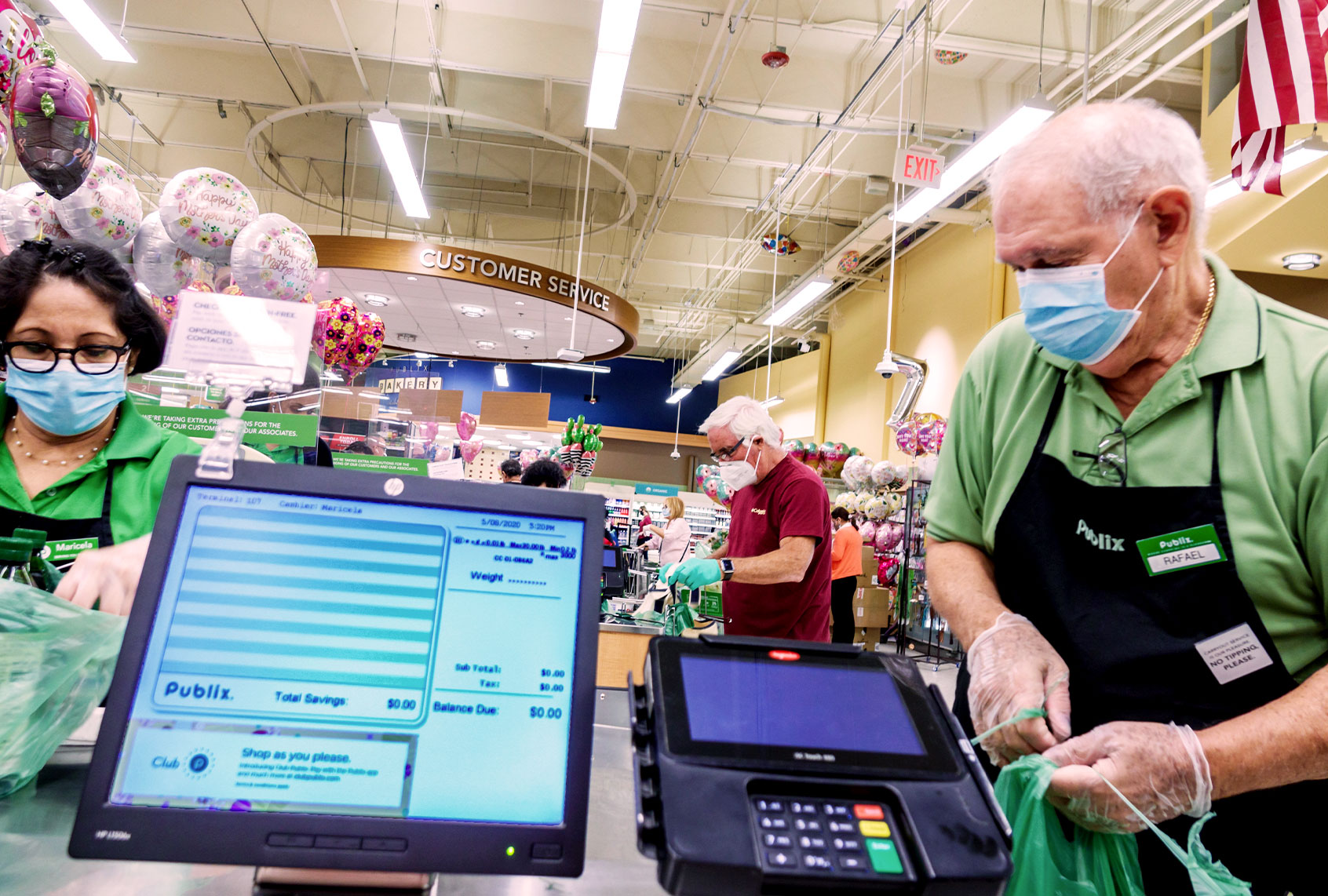As schools in some parts of the U.S. shut down again because of surging coronavirus cases, the retail industry is lobbying to keep doors open for consumers this holiday season.
CNN reported that on a conference call last Thursday, Macy’s CEO Jeffrey Gennette said the retailer was working with local and state leaders to remove the distinction between “essential” and “non-essential” retailers. (It’s been up to city and state officials to define which businesses are “essential” and remain open during this next round of shutdowns).
“We don’t believe the designation of essential and non-essential should play in retail. We believe you either have a safe environment or not,” he said. “You should be held accountable to health and safety standards.”
At the beginning of the pandemic, Macy’s was deemed a “non-essential” business; as a result, the retailer is still recovering from lost sales. Meanwhile, online shopping hubs like Amazon have grown in recent months.
Macy’s isn’t alone in the effort. The National Retail Federation (NRF), which is the world’s largest retail trade association, is lobbying to exempt retail from the label of “essential” and “non-essential” businesses, too. Earlier this month, the NRF filed a request under the New Mexico Inspection of Public Records Act to release information related to restrictions placed on retailers by Governor Michelle Lujan Grisham. Many retailers and eateries were forced to close for 14 days if an establishment met a quota of reported COVID-19 cases in the workplace. Several Walmart stores and grocery stores have been shut down as a result.
A few days ago, New Mexico officials offered businesses an exemption if they regularly test all employees.
“Since the onset of the pandemic early this year, New Mexican retailers have made the safety and security of their customers, employees and local communities their highest priority,” NRF Chief Administrative Officer and General Counsel Stephanie Martz said in a statement. “Furthermore, the state’s new measures burden rural communities by decreasing access to essential items if local businesses are ordered closed.”
In an interview with Salon, Jason Straczewski, the National Retail Federation’s Vice President of Government Relations and Political Affairs, told Salon the retail industry has made a “significant investment” to prepare for in-person shopping this year and keep stores open during the holiday season.”
“We’ve learned so much that we think we have the pathways to serve the customer safely, and we believe that any retail business that is following government protocols for public health and safety should be open and available to serve the customer in their community,” Straczewski told Salon. “The whole designation of what’s essential and what’s not essential is past its expiration date; We think there’s a way to do this safely and effectively, and retailers should be open this holiday season.”
Indeed, Black Friday — America’s strange, hyper-consumerist shopping ritual that sometimes leads to sporadic rage — typically marks a time of year that retailers depend on to make significant profit. Last year, American shoppers spent an estimated $7.4 billion. While Black Friday won’t equate to stores packed with crowds (due to capacity limits, social distancing, and other safety measures), there still will be a lot of deals on Friday that will continue on throughout the week and weekend.
But the focus on the safety of consumers shifts the focus from who is most at risk by keeping these retailers open: the 4,6 million retail workers stocking shelves and checking out customers. Stuart Appelbaum, President of the Retail, Wholesale and Department Store Union (RWDSU), issued a statement this week expressing concern for retail employees this holiday season, which is already a stressful time for them in a normal year.
“Workers are in public-facing jobs; and they interact with larger numbers of customers during the holiday season, risking their own exposure to COVID-19 as well as possibly bringing it home to their families,” Appelbaum said in a statement. “This holiday season, retail workers need customers to do everything they can to help keep everybody safe.”
Workers at Walmart, Amazon, Kroger and Petsmart are calling on their employers to reinstate hazard pay. For these workers, they are being faced with a tough decision this holiday season: work and risk your life, or don’t receive a paycheck. As one anonymous PetSmart employee told NBC News: “The [Black Friday] deals are enticing . . . But this is life and death for a lot of people.”
Dr. Iahn Gonsenhauser, chief quality and patient safety officer at the Ohio State Wexner Medical Center, told Salon retail establishments haven’t been a major source of community spread in the U.S., but the “caveat” is that when physical distancing isn’t being observed, and masks aren’t being worn. Gonsenhauser said if shoppers see a crowd, it’s best to leave and come back at another time.
For the consumers, that’s easier to avoid: if you walk into a store and people are too close to each other, leave. But workers at these stores don’t have that luxury.
“Try and avoid as much of it as you can,” Gonsenhauser said, adding online shopping is definitely preferable.


